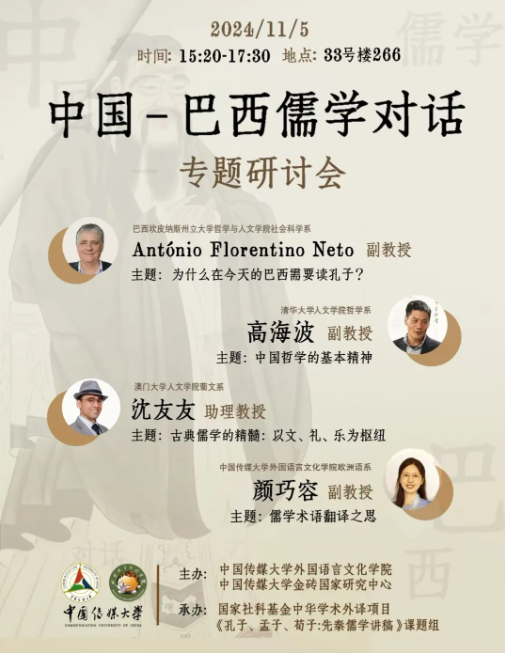
On the afternoon of November 5, 2024, the China-Brazil Dialogue on Confucianism was held at the School of International Studies, Communication University of China. This seminar was jointly launched by the School of International Studies and the Center for BRICS Studies of the Communication University of China and co-organized by the research team of the Confucius, Mencius, Xunzi: Lecture Notes on Confucianism in the Pre-Qin Period, a Chinese Academic Translation Project approved by the National Social Science Foundation of China. Through such an academic dialogue, we celebrated the 50th anniversary of the establishment of diplomatic relations between China and Brazil, delved into the significance and value of Confucianism in modern societies, and promoted the exchanges and coordination between China-Brazil Confucianism scholars for friendly exchanges among the people and better mutual learning.

Group photo of all the scholars
Xie Fei, Vice President of the School of International Studies, Communication University of China, and Director of the Center for BRICS Studies delivered an opening statement to welcome foreign scholars from far away. She believes deep bonds have been formed in economy, culture, and more for Brazil and China during the recent 50 years of international exchanges. Confucianism, an essential component of Chinese culture, has provided rich nourishment for the spiritual communication between the people of the two countries and enhanced their mutual understanding. By exchanging ideas and dialogues on Confucianism, we can better know each other's values, ethics, and social ideals, thus bolstering mutual learning based on people-to-people bonds for both countries.
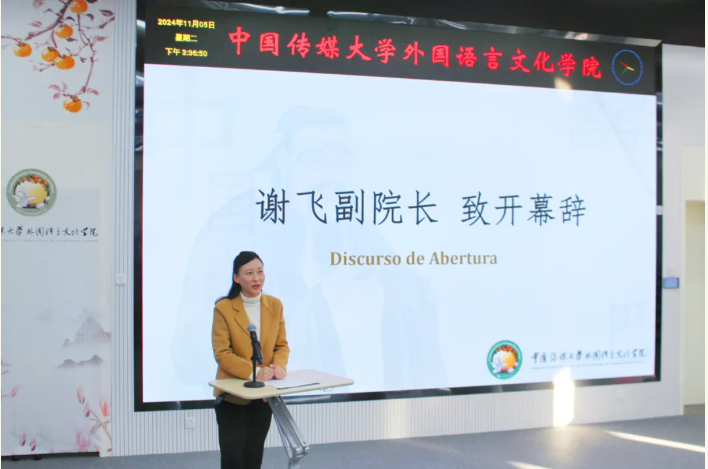
Xie Fei, Vice President of the School of International Studies, Communication University of China
delivered an opening statement
Florentino, Editor-in-chief of the Brazilian Philosophical Press and Modernos & Contemporâneos and Doctoral Supervisor of the Institute of Philosophy and Human Sciences, Campinas State University made a presentation on Why Do We Need to Read Confucius in Brazil Today. He discussed how to address the characteristics and commonness with philosophy, underlined the significance of Confucianism in modern society, and explored the differences between Confucian philosophy and Western traditional philosophy from a unique perspective. He believes that philosophy is more than an ideology museum or a collection of ancient thought, but a pool of updated ideas pulsating with life. The wisdom of Confucius can contribute to solving the problems in contemporary Brazilian society.
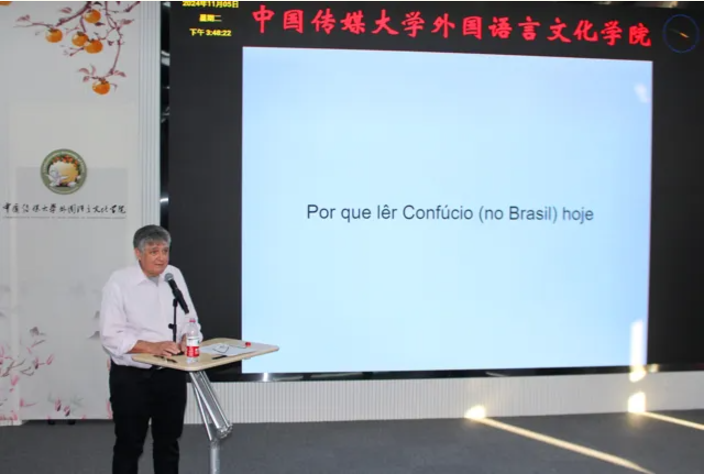
Florentino, Editor-in-chief of Brazilian Philosophical Press made his presentation.
Gao Haibo, Associate Professor of the Department of Philosophy, College of Humanity, Tsinghua University and Deputy Secretary-General of Zhu Xi Research Committee of the History of Chinese Philosophy Society delivered an academic report titled Wise yet Moderate: The Spirit of Chinese Philosophy. Starting from the concepts of "reaching the utmost clarity" and "following the middle way", he conducted an in-depth comparison between the connotations of Chinese and Western philosophy. He emphasized that the highest realm pursued by Chinese philosophy is characterized by a unity of everyday life and spiritual life, with well-balanced human relations embedded within. This unity reflects a fusion of daily life and spiritual cultural life, which is the essence of Chinese philosophical pursuit.
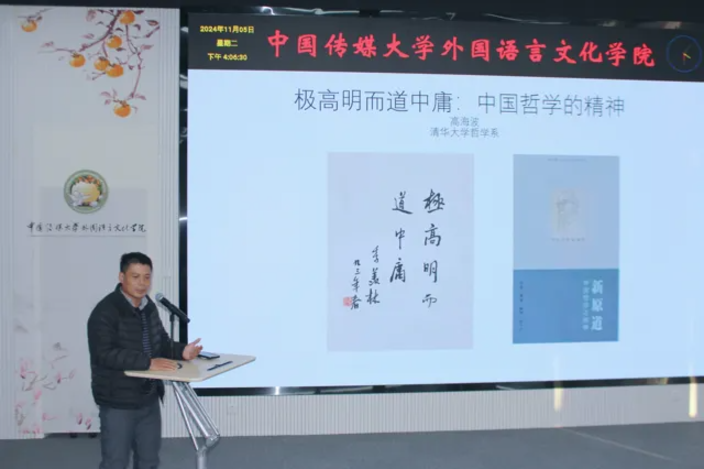
Associate Professor Gao Haibo made a report.
Giorgio Sinedino (Shen Youyou), Brazilian Sinologist, Director and member of the 7th Executive Committee of the International Confucianism Association, and Assistant Professor of the University of Macau, delivered a speech titled "The Essence of Classical Confucianism: Taking Literature, Rites and Music as the Pivots". Dedicated to researching Chinese traditional ancient books and culture, he published many translations with extensive elaborations, including "The Analects of Confucius: Portuguese Interpretation". He stressed that we should accommodate the ancient reading methods in translation and supplement related cultural backgrounds. By explaining how the meaning of the Chinese character "文" has been evolving, the institutional and normative role of rites ("Li"), and people's life pursuits related to music ("Yue"), he revealed how these three factors constitute the cores of Chinese culture and embody people's quests for elegance and beauty.

Brazilian sinologist Giorgio Sinedino (Shen Youyou) delivered a speech.
Yan Qiaorong, Associate Professor of Portuguese at the School of International Studies, Communication University of China, and the head of "Confucius, Mencius, Xunzi: Lecture Notes on Confucianism in the Pre-Qin Period", a Chinese-foreign academic translation project approved by the National Social Science Foundation, shared three developmental characteristics of Chinese philosophical terms based on the different translations of "Junzi (君子)" in the Analects of Confucius: historical changes, interpretability, and dynamic contextuality. The concept of historical changes means that from the three emperors and five emperors to the six classics of the pre-Qin Dynasty, the source of Chinese philosophical terms has been established, but most of the terms have evolved continuously throughout history. Interpretability indicates that Chinese philosophers mainly focus on creatively interpreting the classics with abundant annotated texts rather than creating original works. Dynamic contextuality shows that the meaning of a Confucian term changes along with the evolutions in social and historical contexts. But in most cases, it is only the adjustment of its usage and application scope. So, she concluded that we should trace the roots to the source, navigate the trends to probe into the changes, and consider the contexts to seek the truth when translating Confucian terminology, thus delivering the essence of Chinese philosophy.
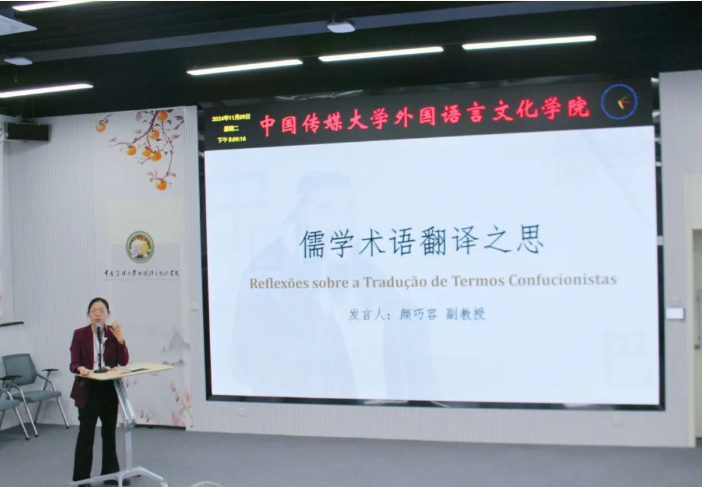
Associate Professor Yan Qiaorong made a speech.
After delivering their speech, the scholars proceeded to the Q&A link, where they had a heated discussion with the audience on fraternity vs. benevolence, philosophy vs. thought, and the original goodness and evil of human nature.
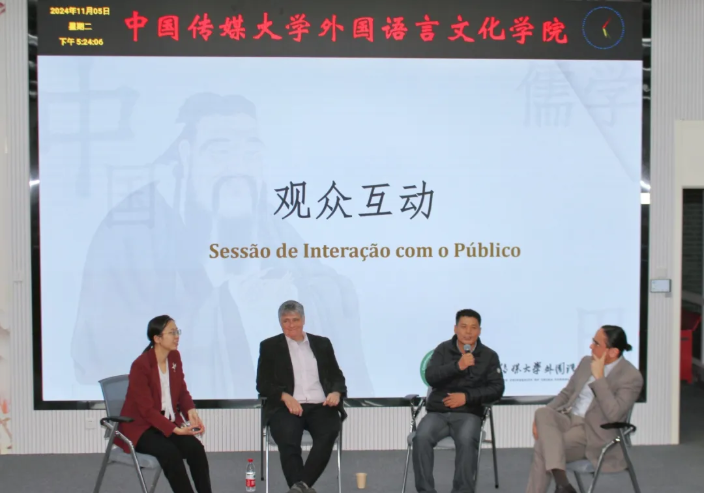
Audience interaction
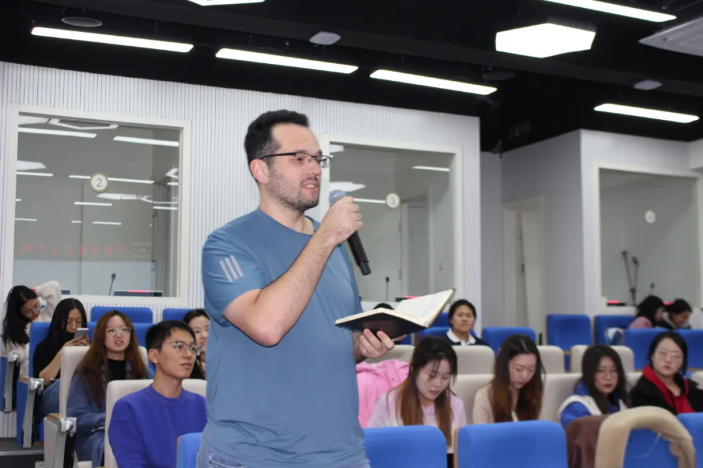
Pedro Regis Cabral (Gao Peide) Brazilian Doctor of Philosophy raised a question.
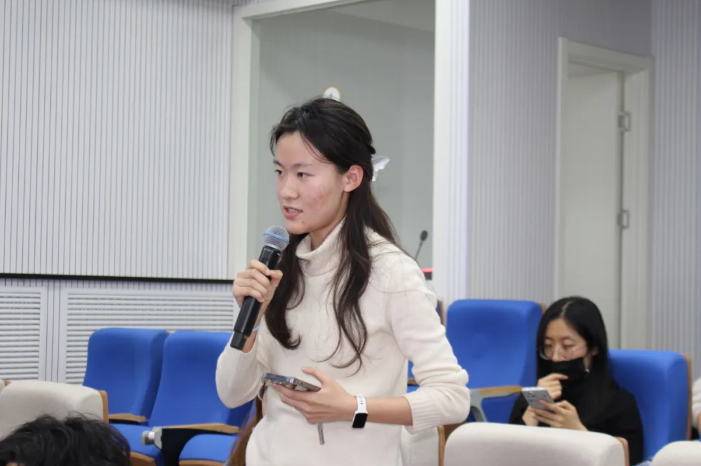
Sun Yu, a Portuguese major student of the Class of 2023 asked a question.
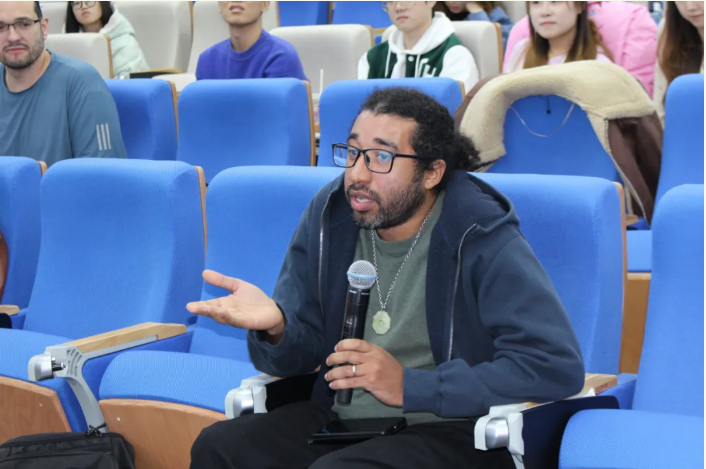
Erasto Santos Cruz, a Brazilian foreign teacher at Beijing International Studies University raised a question.
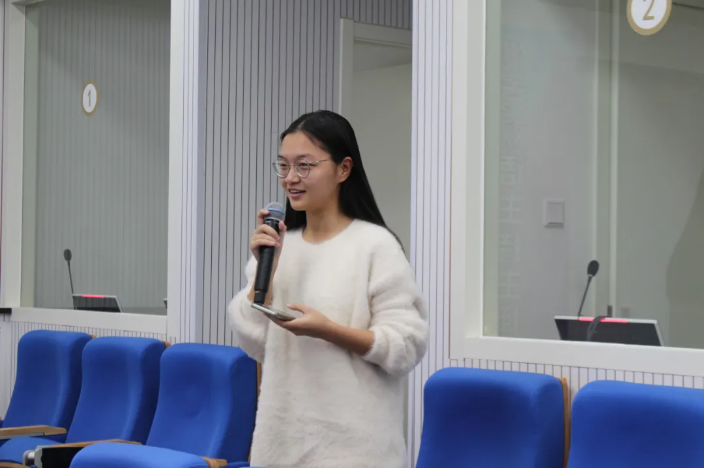
Zhou Linxuan, a Portuguese major student of the Class of 2024 asked a question.
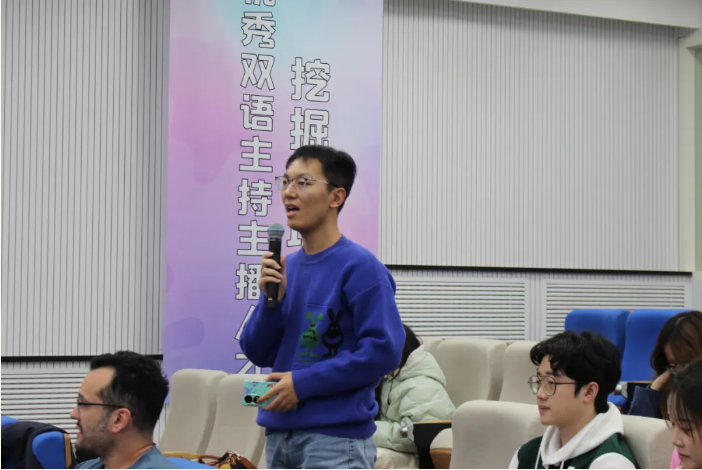
Wang Luxue, a doctoral student of the Department of Philosophy at Tsinghua University asked a question.
The China-Brazil Dialogue on Confucianism represents a significant milestone in our institution's efforts to develop regional and national studies disciplines, as well as in our research on BRICS countries. This event has fostered valuable exchanges and collaboration within the academic communities of China and Brazil, and has also provided our young students with profound philosophical insights and nourishment, enriching their intellectual pursuits.
(Editor: Wu Xinyan)














